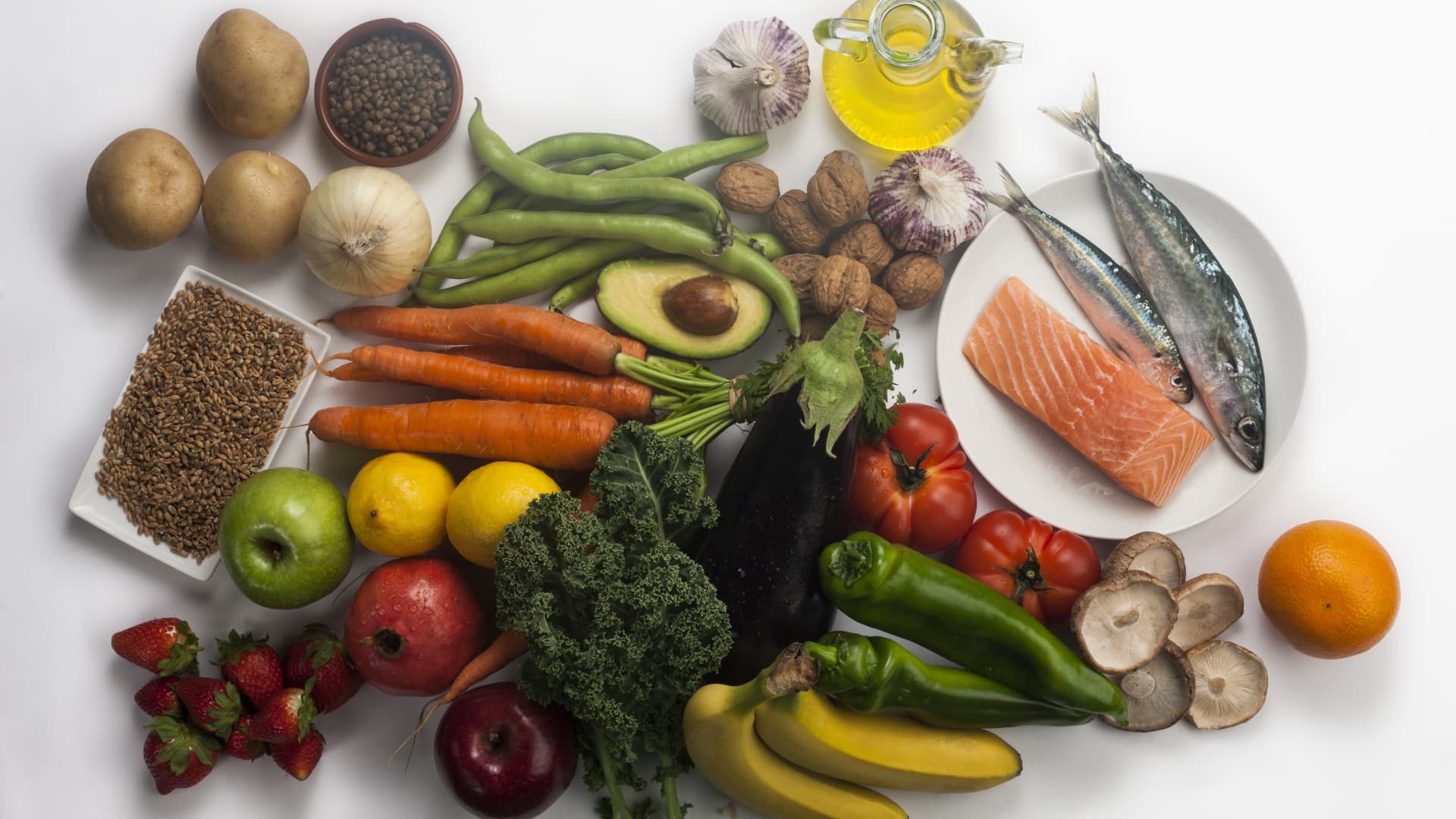
Fatigue, brain fog, heart palpitations and breathing difficulties.
Those are just some of the common symptoms of "long Covid" that can affect people in the long term after recovery from infection, according to the Centers for Disease Control.
There's still much left to learn about long Covid. While eating the right foods is not a cure for long Covid, diet and nutrition could play a key role in helping those suffering from it to cope, experts tell CNBC Make It.
According to Dr. Greg Vanichkachorn, director of the Mayo Clinic's Covid Activity Rehabilitation Program, symptoms are only "half of the picture."
Get a weekly recap of the latest San Francisco Bay Area housing news. Sign up for NBC Bay Area’s Housing Deconstructed newsletter.
"The other half is how those symptoms affect a person's ability to live their lives. Unfortunately, the symptoms of long-haul COVID can be quite limiting."
Vanichkachorn added that over a third of Mayo Clinic's patients with long Covid report having troubles with some of the most basic activities of life, such as getting dressed, showering, and eating.
Money Report
"It's just a bad movie that we still don't have the ending for," said Dr. Joan Salge Blake, Boston University's clinical professor of nutrition.
Long Covid is essentially post-infection conditions that could linger for weeks, months or years — long after a person tests negative for Covid-19. It can also be referred to as post-Covid conditions or chronic Covid.
Experts who spoke to CNBC Make It said there's still a lot to learn about long Covid, but nutrition plays a vital role.
"Heart disease, certain cancers, stroke and type two diabetes … you can fight all of those diseases with a knife and a fork," said Blake.
"That is empowering because you have control of what's on your plate and what you eat."
For those looking for ways to cope with the symptoms of long Covid, CNBC Make It finds out what you should and shouldn't be eating.
1. Mediterranean diet
Vanichkachorn and Blake both emphasized the importance of a balanced diet, which they say will be beneficial for general health — specifically, a Mediterranean diet, which is rich in vegetables, fruits, olive oil, nuts and whole grains.
Fruits and vegetables, in particular, are "powerhouses" when it comes to essential vitamins and minerals, said Blake.
However, that doesn't mean forgoing meat or protein, Vanichkachorn said, adding that fish and chicken are good options.

Blake added, "Poor protein [intake] can contribute to fatigue, and that's the one thing you don't want because Covid is going to give you fatigue … it sure isn't going to help if you don't have enough protein in your diet."
Fatty fish, like tuna and salmon, is a good source of omega-3 acids, which can improve cardiovascular health.
But ultimately, the focus should be building a well-rounded "super diet," instead of focusing on "superfoods," Blake said. Superfoods are those rich in antioxidants, fiber and fatty acids, which are beneficial for health.
"It's a super diet that will help you fight chronic diseases. When all the vitamins and minerals are working together, that is going to be your best defense."
2. Beware of vitamin deficiencies
Research hasn't confirmed if specific vitamins are helpful in fighting long Covid, but it is nevertheless important to treat vitamin deficiencies, said Vanichkachorn.
"For example, a deficiency of vitamin B12 can lead to symptoms such as fatigue, shortness of breath, and difficulty thinking," he said.
Minerals like iron are important too. A recent study indicated that patients with long Covid may have trouble with how their bodies use and store iron.

"Iron deficiency can cause many symptoms, including anemia and fatigue. Deficiency can occur from many reasons, such as poor intake, but can also be associated with chronic diseases," said Vanichkachorn.
However, he cautioned against using vitamin or mineral supplements without first seeking medical advice.
"If you are worried about vitamin or mineral deficiencies, the first step is to speak to your medical provider," he said.
3. Stay hydrated
Vanichkachorn stressed that all patients with long haul Covid should stay hydrated.
"When individuals have acute Covid, they are often resting and sleeping for prolonged periods of time. With this, their nutrition gets thrown off, particularly hydration," he added.
"Unchecked, dehydration can make anyone feel miserable, not just patients who are experiencing long-haul COVID."
Acknowledging that patients often need reminders to stay hydrated, Vanichkachorn encouraged those with long Covid to carry a bottle with them.
He added, "If plain water is too boring, you can also add a piece of fruit such as lemon or lime to help with the taste. These simple changes can make staying hydrated so much easier."
4. What to stay away from
Because acute Covid can cause "very significant inflammation" in the body, said Vanichkachorn, it'll be good to stay away from anything that will worsen it.
"We have seen some markers of inflammation ... be elevated in this patient population [suffering from long Covid]. The inflammation likely is secondary to immune system abnormalities, perhaps even autoimmune type probabilities," he added.

Red meat and processed foods such as sugary drinks and dessert can worsen inflammation.
"I remind patients that we are all human and it is okay to occasionally have a treat. But I would keep such foods exactly that — a treat and not a staple," said Vanichkachorn.
Like this story? Subscribe to CNBC Make It on YouTube!






